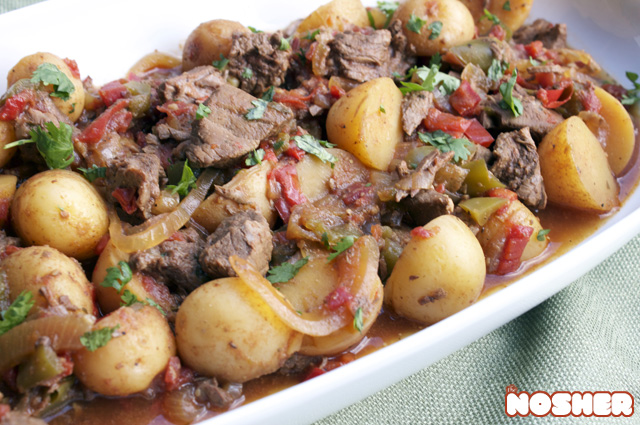If you could only cook three dishes for Shabbat dinner what would they be? This was the question we posed to culinary historian Michael “Kosher Soul” Twitty, author of the Afroculinaria blog and a Jewish educator. Twitty, who was most recently featured on Henry Louis Gates Jr.’s The African Americanson PBS will be the chef-in-residence at Be’chol Lashon’s upcoming retreat.
The Shabbes table is reminiscent of the way my grandmother would frame occasional Sunday dinners and holiday meals, white tablecloths and candles. So that Jewish esthetic makes sense to me. It engenders respect and sacredness. I would polish candlesticks and set out tablecloths. I’m not great at setting the table but how the food looked was important to my mother and my grandmother. Julius Lester says, “the Shabbes Table is a banquet for God.” The table becomes a crossroads between the divine and earth, a sacred circle. In both the African and Jewish Diasporas, the sacred circle, where multiple parts of ourselves meet, is an important theme. That is what helps make the table be a mizbeach, a holy alter. I find myself cooking for Shabbes with a great spirit of urgency and putting as much kedusha [holiness] as possible. People sometimes forget this ;— kedusha is the greatest spice.
If I could only cook three dishes it would have to be all the parts of who I am.
Number one would be Kasha Varnishkes. I make a mean kasha varnishkes in its pure form with onions browned and a little bit of garlic. Really earthy. I’m not a groats and seed feeder but there is something is very satisfying about a plate of kasha varnishkes. It is brothy, I use 3-4 kinds of onions. The whole garden goes in the broth. So simple and so pleasing.
In Jewish cooking you have foods dictated by text, food that the Torah talks about. Then you have foods that speak to the land of Israel and what grows there. Then you have foods that come from the places we have been, from our diaspora. And then there is identity cooking. The foods that are tied up with your sense of self and the place you are in, where you are and how you are connected to that place.
When I make kasha varnishkes, that is straight up s’htep food. When you can master traditions like that it is a way of saying I’m here. I’ve arrived here and I’m not going anywhere.
My second food would be barbecue beef ribs. Because you can’t get Blacker than barbecue. That is our unique contribution to American cuisine above the rest. It is not a food you make just because you feel like it. You make it for a special occasion. It makes your clothes smell a certain way. Your hands smell a certain way. You plan for it, work for it. And I don’t mean making it in the oven. You marinate it. You rub it. Out comes the hickory. It cooks for three to four hours and then you cut them up and there they go.
Barbecue connects me with my father and my grandfather. Very male food in terms of who made it. A patrilineal dish. We get it passed down to from our fathers, and from their fathers. I make two recipes, one more traditional; marinate forever, rub forever and smoke forever. And the other I call Yiddishe Ribbenes which takes all the flavors from all the parts of the Jewish Diaspora and makes the same flavor profile I grew up with. I like to do both.
For the third dish, I have to say Kosher Soul Rolls. Kosher soul rolls are Black Jewish egg rolls. Instead of cabbage, collard greens. Instead of ham or pork, I use pastrami. One thing Blacks and Jews have in common is loving Chinese food. Deep-fry them, of course.
Can I add a bread? My favorite challah recipe is the Beigel Family Challah from Joan Nathan’s The Foods of Israel Today. It is best challah I’ve ever made or tasted so that’s the one I make. And every time I make the challah the story comes with it. This was a family that survived the Shoah and made their way to Israel. Tribute challah.







